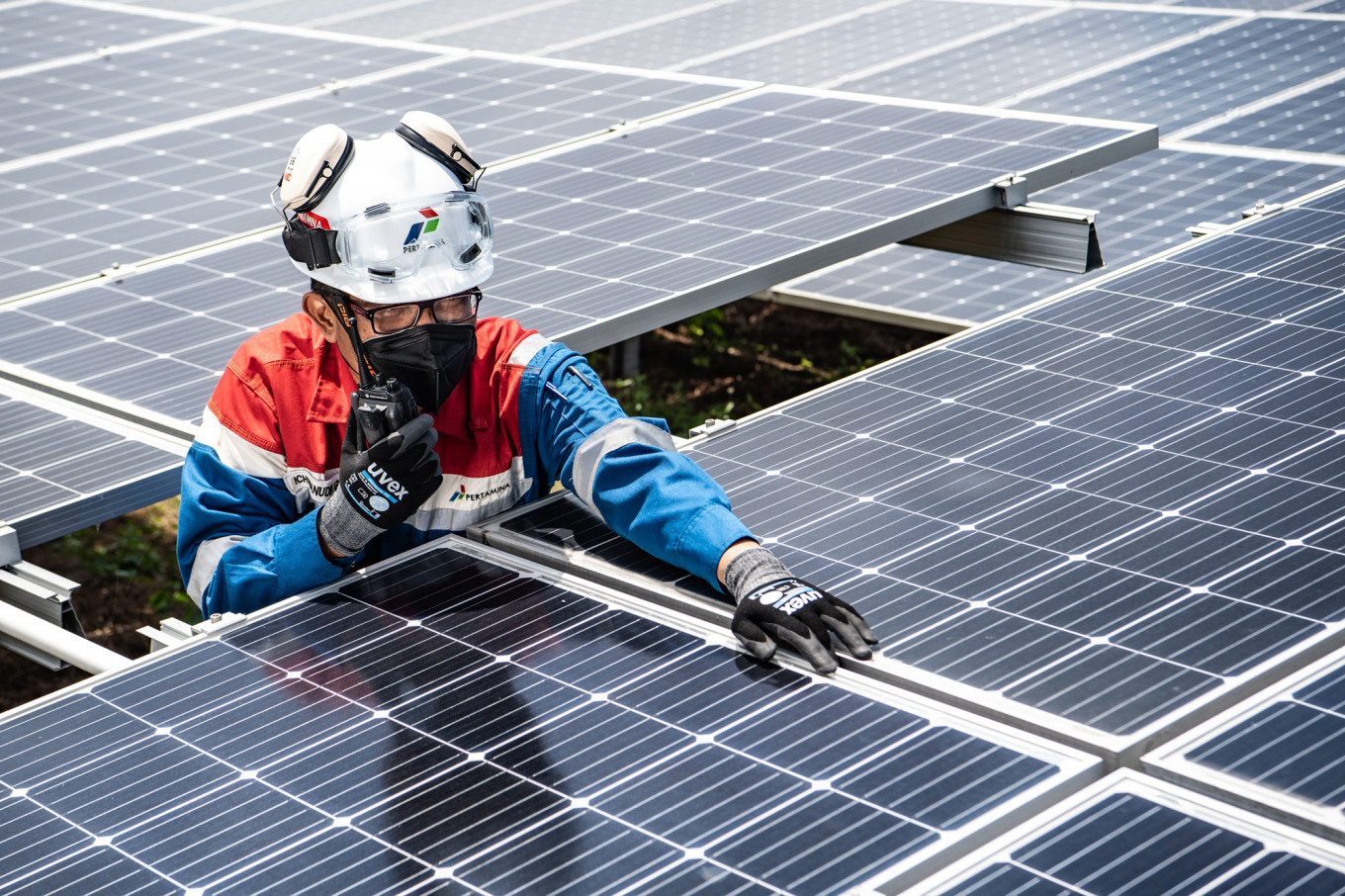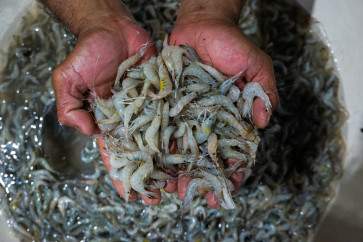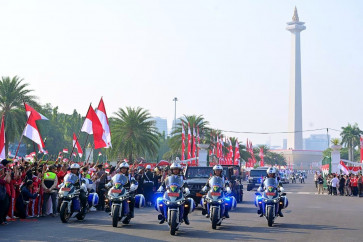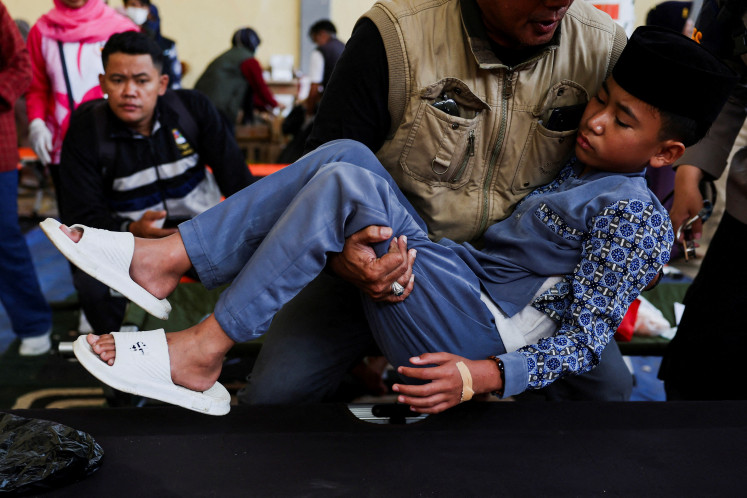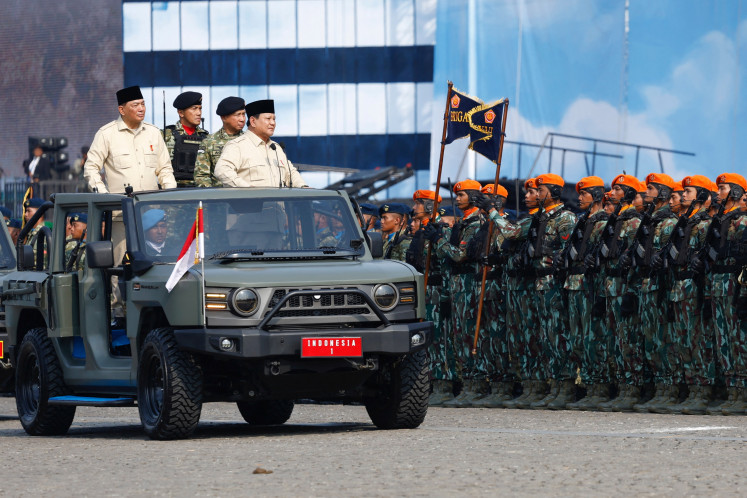Popular Reads
Top Results
Can't find what you're looking for?
View all search resultsPopular Reads
Top Results
Can't find what you're looking for?
View all search resultsEnergy policy revisions could reduce incentives for rooftop solar panels
The government's move to revise existing regulations is seen by the industry as a step back to Indonesia’s struggle to push for rooftop solar panel adoption.
Change text size
Gift Premium Articles
to Anyone
T
he government is mulling over the revision of a ministerial regulation that was supposed to incentivize rooftop solar panel adoption, a move seen by the industry as a step back to Indonesia’s push to bring clean energy closer to customers’ doorstep.
The revision will impact the Energy and Mineral Resources (ESDM) Ministerial Regulation No. 26/2021 as the most recent rule for rooftop solar panels, which deemed by the industry and customers has brought massive improvement compared to many of its predecessors.
Indonesia has made many attempts to enact a reliable regulatory framework, hoping to spur rooftop solar panel adoptions as part of a larger effort to have renewables contribute to at least 23 percent of the national energy mix by 2025.
Currently, the Energy and Mineral Resources Ministry aims to have 2.14 gigawatts of solar power capacity installed by 2030 with 0.64 GW of which would be installed in households, 0.74 GW at state-owned enterprises (SOEs) and the rest in industries and businesses.
As of November 2022, however, Indonesia only managed to get a total of 6,461 rooftop solar panel users with a total installed capacity of 77.6 megawatts peak, indicating a large discrepancy between the current development and the desired target.
The following are some of the key points of the planned changes from the ministerial regulation, based on a document seen by The Jakarta Post, with the enactment of a capacity quota and elimination of the electricity export system being the most highlighted planned changes.
Quota based system
Article 5 of the proposed revision will limit the amount of electricity capacity users can install as it will depend on the remaining quota for rooftop solar panels in the state-owned electricity company PLN’s transmission system for the given area, which come on a “first come, first serve” basis.
According to the prevailing regulations, installation capacity may reach 100 percent of the total electricity consumed by the customer.
The Indonesian Solar Energy Association (AESI) noted that since January 2022, solar rooftop panel users have seen a restriction, with some only allowed to use between 10 and 15 percent of their installed capacity, which was expected to reduce interests of rooftop solar panel use.
AESI chairman Fabby Tumiwa suggested the government consider determining the quota every six months, if the government insists on implementing the quota system.
“The process to determine the quota needs to be clarified and made transparent because it will directly impact plans to develop renewable energy in regions all over Indonesia,” he wrote in a statement.
Andriah Feby Misna, the energy ministry’s director of various renewable energy sources, said the quota system would prevent users from exporting their excess electricity to PLN, which would help maintain PLN’s transmission capacity amid surge of input from rooftop solar panels.
“PLN’s infrastructure to handle intermittent power generation is still limited,” she said in Jakarta on Wednesday, as reported by Katadata.co.id. Intermittent stands for the nature of electricity produced by renewables like solar that tends to fluctuate overtime.
No more electricity export
The planned revision erases all provisions that allow customers to export all their excess electricity, produced by their rooftop solar panels, to PLN as well as benefits related to it.
This includes article 6 under the prevailing regulations that allows users to acquire a bill deduction each time they can export more electricity produced by their rooftop solar panels to PLN than they imported from the company’s system.
With the current scheme, solar panel owners may save up a significant amount from deducted electricity bill to recoup their investment more quickly.
Indonesian Rooftop Solar Panel Installer Association (Perplatsi) chairman, I Gusti Ngurah Erlangga said the government should reduce the export value instead of eliminating it completely to tackle concerns.
“Small-scale rooftop PLTS installers are at a disadvantage [if this] revision [goes through],” he said in a statement published on Feb. 14.
Article 31A in the planned revision still allows existing users to export their excess electricity to PLN for no more than 10 years after the rooftop solar panel was online, but only for installments prior to the amendment.
“But, from the information we gathered, no users were able to utilize the benefits in the current regulations, including the 100 percent export scheme,” Daniel Kurniawan, an energy transition analyst at the Institute for Essential Services Reform (IESR), told The Jakarta Post on Thursday.

